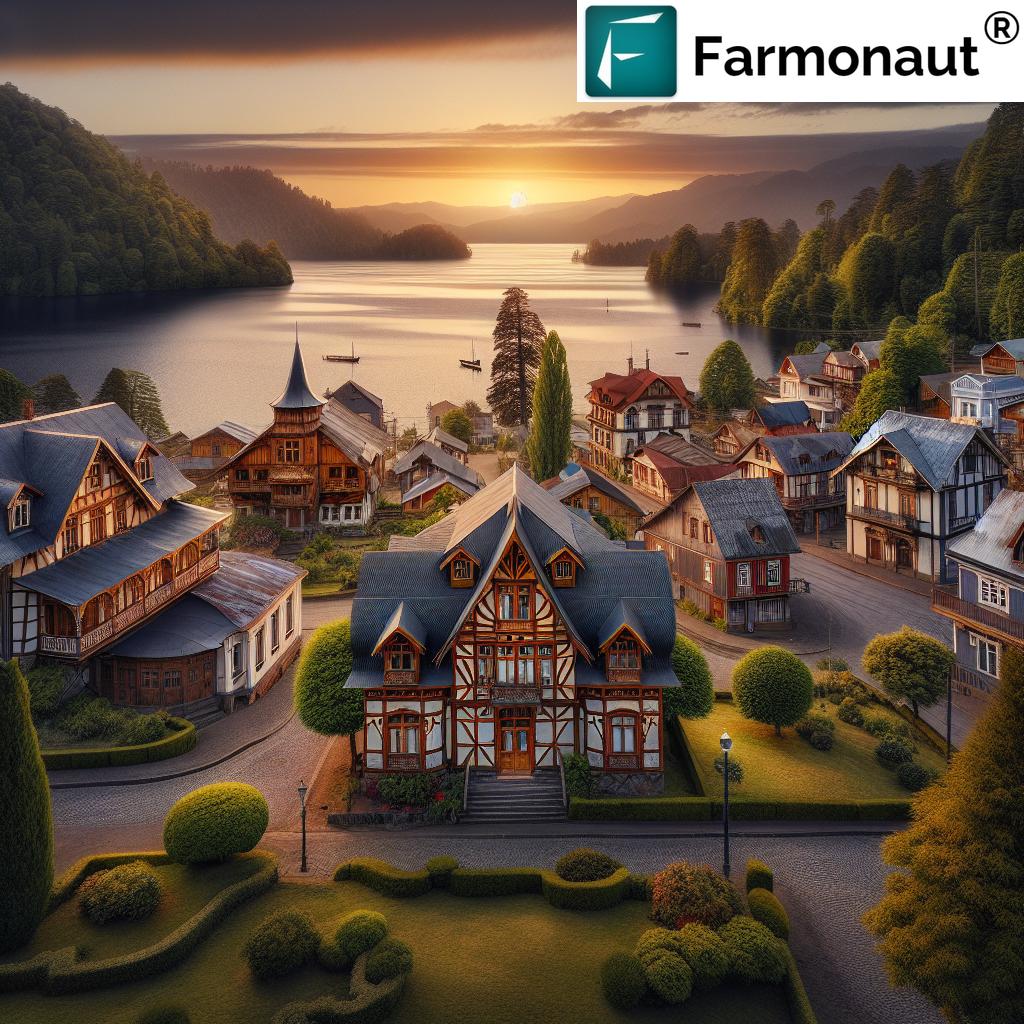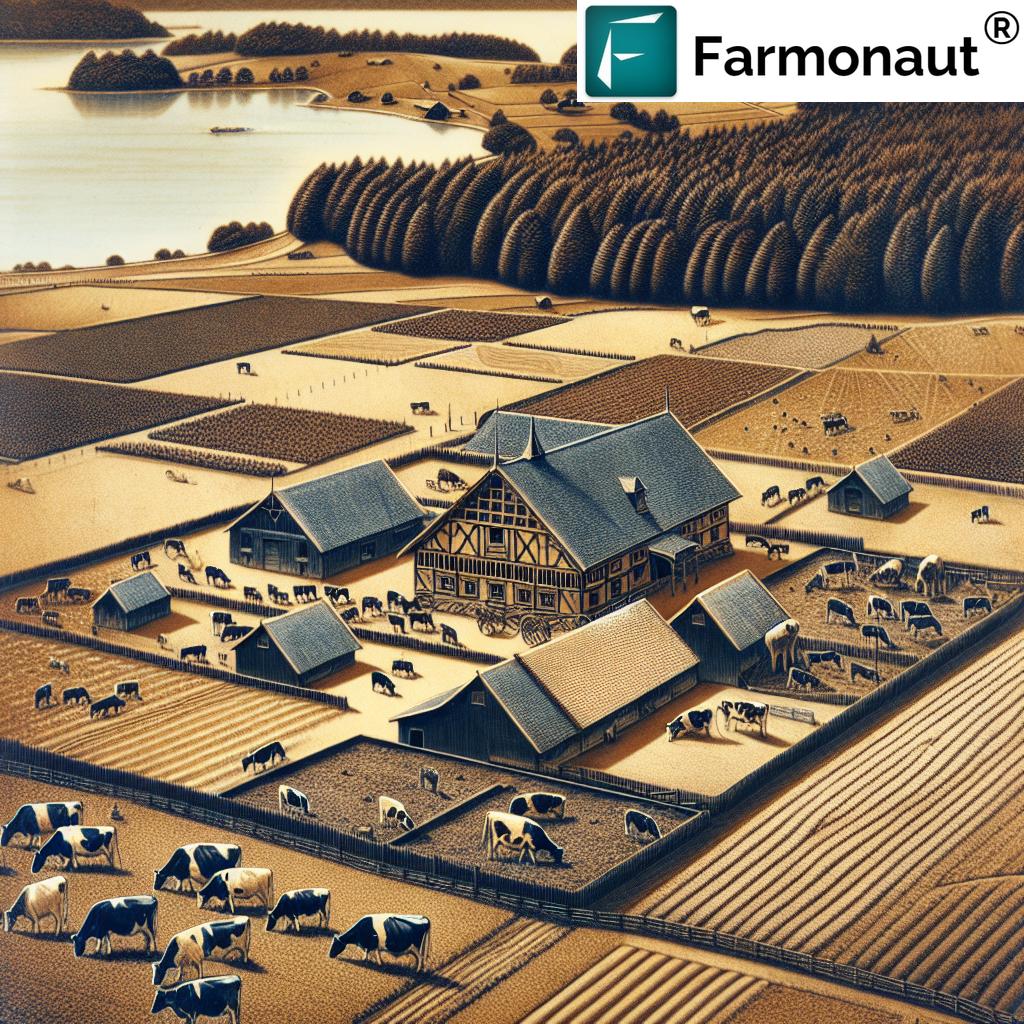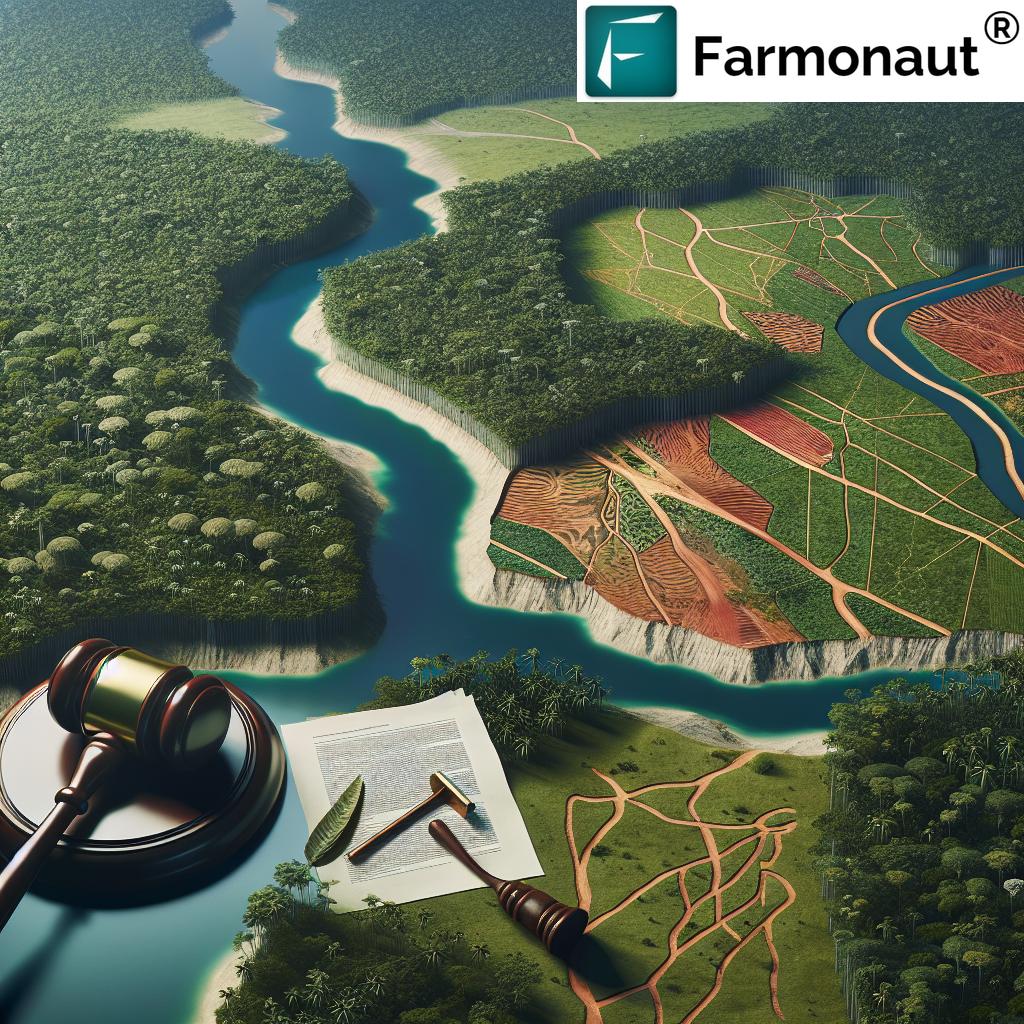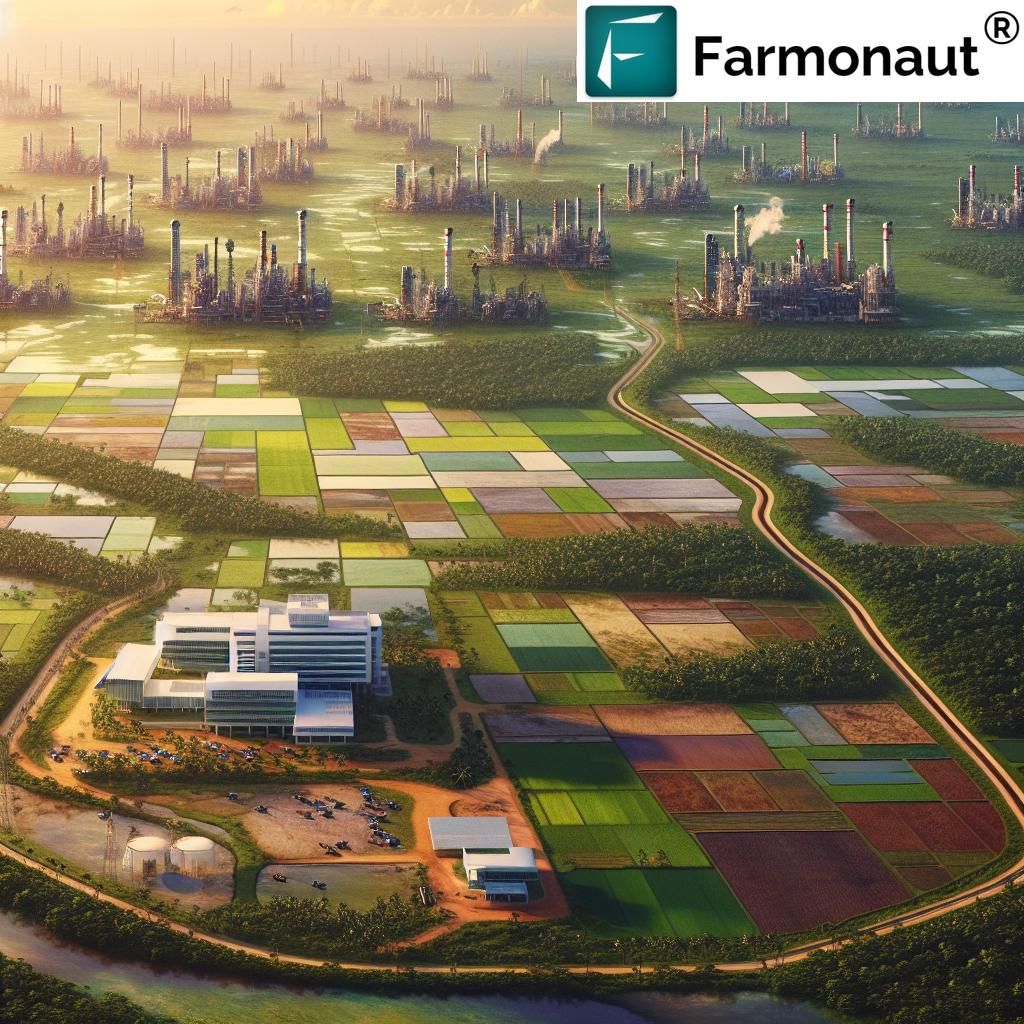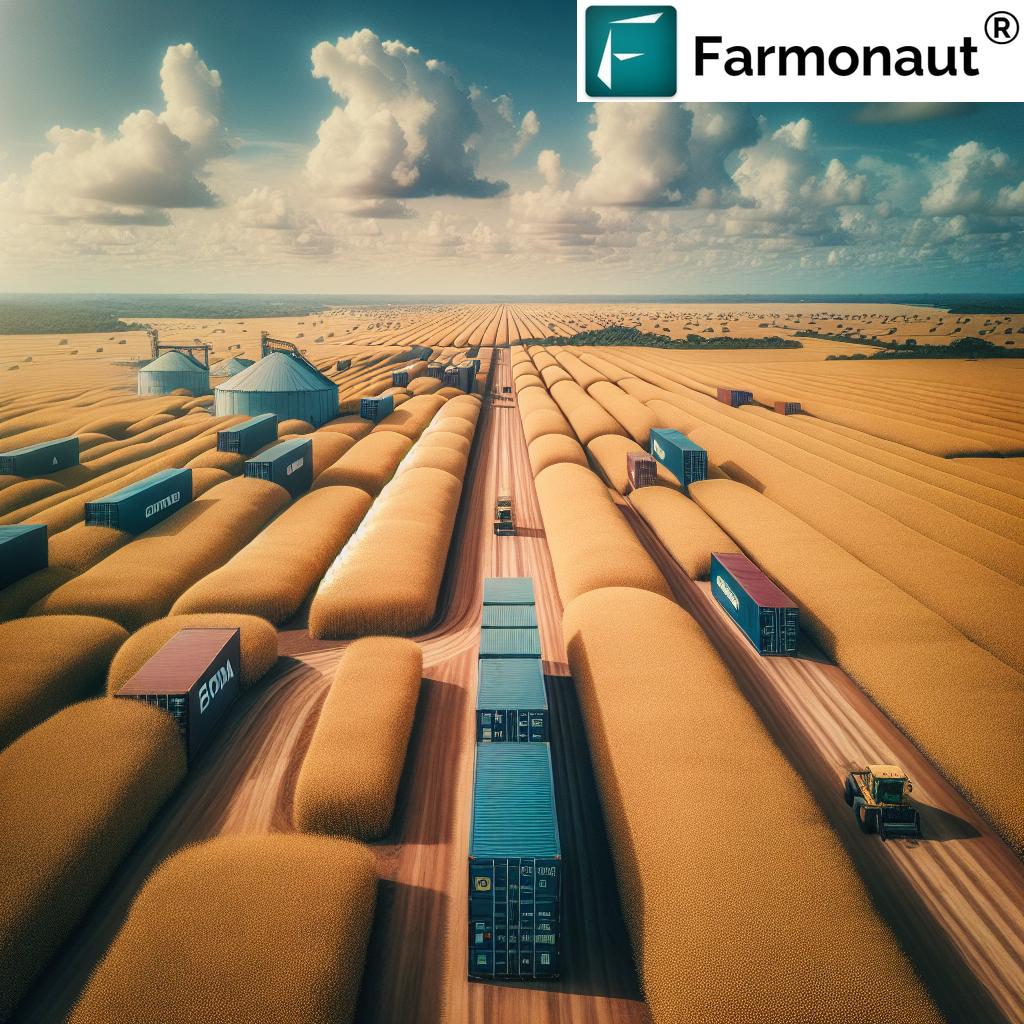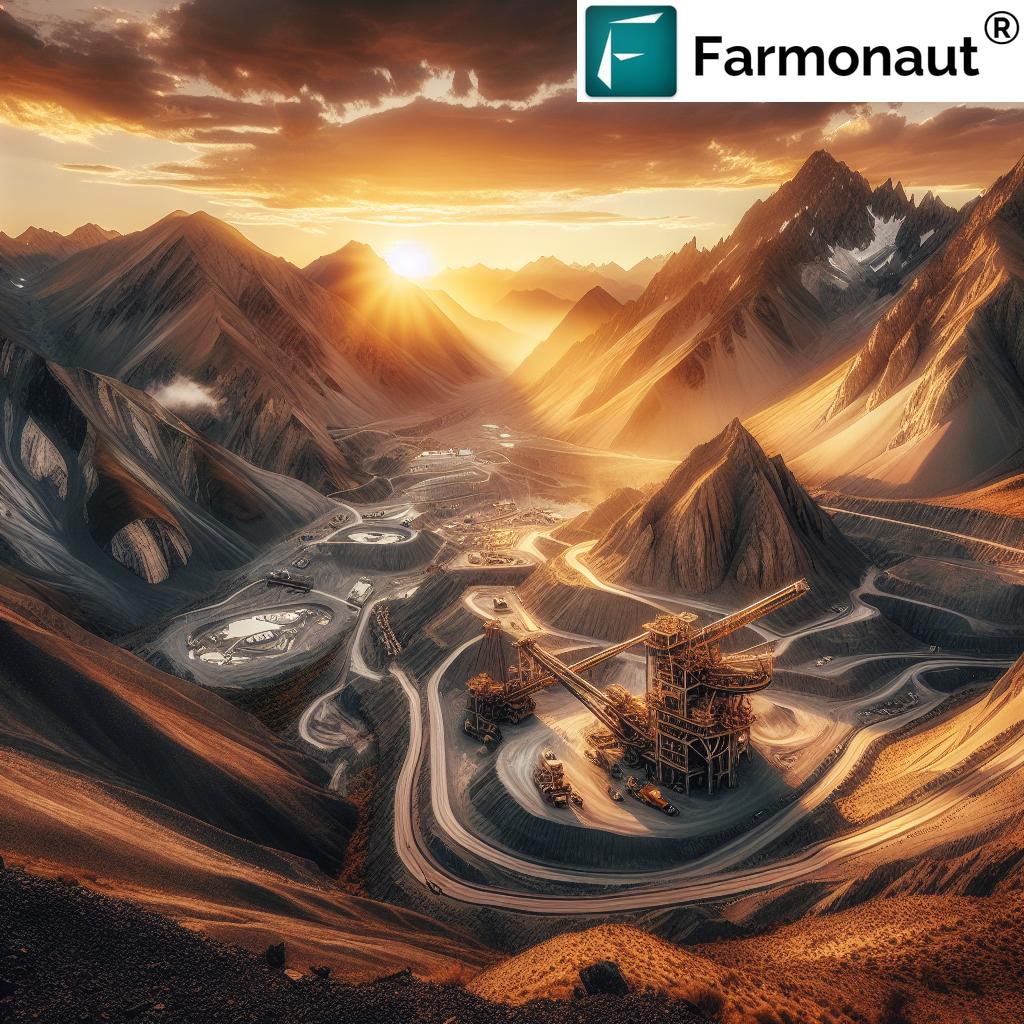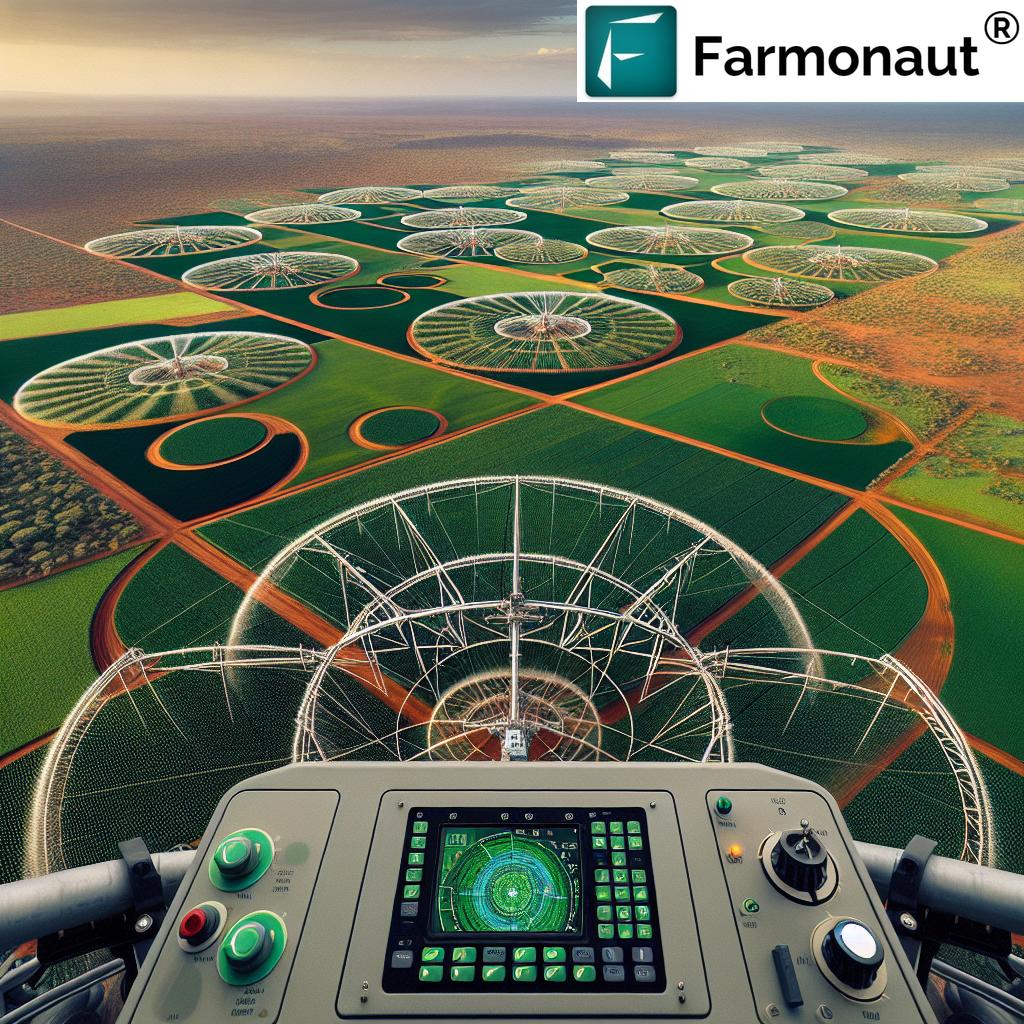Frutillar Chile: 7 Fascinating Ways German Heritage Shapes the Town
Frutillar: A Tapestry of German Heritage Woven into Chilean Shores
“Over 60% of Frutillar’s historic buildings feature German architectural styles, reflecting its 19th-century immigrant roots.”
- Introduction: Where German Heritage and Chilean Nature Meet
- Frutillar’s German Roots: History and Colonization
- 1. German Architecture in Southern Chile: Fachwerk Houses & More
- 2. German Cuisine in Frutillar: Kuchen, Bakeries & Dairy
- 3. Agriculture in Southern Chile: Sustainable German Farming
- 4. Festivals & Music: Frutillar Musical Weeks
- 5. Language, Education, and German Traditions in Chilean Towns
- 6. Local Businesses & Economic Growth
- 7. Sustainability & Heritage Preservation
- Farmonaut: Innovating Agriculture in Heritage-Rich Regions
- Impact of German Heritage on Frutillar’s Key Aspects
- Frequently Asked Questions about Frutillar Chile
- Conclusion & The Future of Frutillar
Introduction: Where German Heritage and Chilean Nature Meet
Frutillar Chile stands as a vivid tapestry where German heritage, natural beauty, sustainable agriculture, and innovative tradition converge. Nestled on the pristine shores of Lake Llanquihue, in southern Chile’s Los Lagos region, this charming town is renowned for its unique blend of European architectural style, cultural vibrancy, and deep connection to the environment.
Our journey through Frutillar invites us to discover how the enduring legacy of German settlers—their architecture, cuisine, communal spirit, and sustainable agricultural practices—continues to shape the identity, economy, and outlook of this enthralling lakeside community. From its frontier outpost days and development into a modern hub of cultural tourism, Frutillar remains a model for balancing heritage preservation with environmentally responsible growth.
As we embark on this exploration, we’ll see how each layer of Frutillar’s German roots enriches the community and invites locals and visitors alike to take part in a living dialogue between past, present, and future.
Frutillar’s German Roots: History and Colonization
To grasp how German heritage in Chile took root so deeply in Frutillar, we begin in the mid-19th century. At that time, the Chilean government was eager to populate its southern territories—frontiers marked by rugged forests, volatile weather, and untamed land.
With a forward-looking vision, government agent Vicente Pérez Rosales traversed Europe to recruit pioneering immigrants—skilled workers, craftspeople, and farming families from Germany. Attracted by the promise of resource-rich land and opportunity, these settlers landed in Puerto Montt around the 1850s and journeyed onward, often by oxcart, to establish new communities deeper inland, with Frutillar as a prime destination.
From the outset, the German settlers brought advanced agricultural techniques, architectural knowledge, and European business acumen—qualities that would transform the local economy and forge enduring communal ties. Their influence continues in everything from German architecture to the town’s ongoing sustainable development efforts.
Why Did Frutillar Attract German Immigrants?
- Fertile Land: Resembling Germany’s own landscapes, the region offered abundant opportunities for agriculture and dairy farming.
- Growth Potential: Backed by government incentives and a wealth of untapped resources, settlers anticipated economic prosperity through farming and production.
- Community Support: Collaborative spirit cultivated resilience—German businesses and families worked together, helping Frutillar flourish amid challenging conditions.
- Sustainability: Early communal priorities included forestry management, environmental stewardship, and preservation of both European and Chilean traditions.
Before the arrival of Europeans, the Huilliche people, a branch of the Mapuche nation, called this area home—living sustainably through fishing, hunting, and agriculture. While their story often stands in the shadow of Frutillar’s German narrative, their presence is integral to the history of the region.
1. German Architecture in Southern Chile: Fachwerk Houses & More
Frutillar’s lakefront vista and residential areas are living museums of German architecture in Southern Chile. More than 60% of its historic buildings display distinctive German-influenced styles—an iconic blend that helps define Frutillar’s atmosphere and tourist appeal.
Key German Architectural Features in Frutillar
- Fachwerk (Half-Timbered) Structures: Exposed wooden framework with beautifully decorated facades, achieving both strength and aesthetic harmony.
- Steeply Pitched Roofs: Designed to shed the region’s frequent rain and echo European design sensibilities.
- Ornate Wooden Details and Balconies: Decorative railings, carefully carved eaves, and flower-filled garden spaces nurture an outdoor lifestyle reminiscent of rural Germany.
- Eco-Friendly Construction: The use of local timber, energy-efficient stonework, and methods that blend with Frutillar’s natural environment highlight a longstanding commitment to sustainability.
Preservation & Environmental Harmony
In Frutillar, traditional homes and local buildings undergo careful restoration with eco-conscious materials and practices. This not only revitalizes the historic character of the town but also underscores a commitment to both heritage and the environment. Efforts to maintain local scenery—tree-lined streets and gardens—invite visitors for Lake Llanquihue tourism experiences with authentic regional charm.
2. German Cuisine in Frutillar: Kuchen, Bakeries & Dairy
Food is where German traditions in Chilean towns become truly tangible. The aroma wafting from Frutillar’s bakeries and the ever-present sight of “Kuchen” stands point to a living culinary legacy.
German-Inspired Culinary Staples
- Kuchen: The German word for cake, Kuchen is the region’s culinary signature. From berry-filled to nutty or creamy, its numerous varieties—all made with local ingredients—highlight enduring German influence.
- Dairy and Cheese: Drawing on agricultural roots, Frutillar is famed for its dairy products; German settlers introduced advanced dairy farming techniques and established the area’s first creameries.
- Local Bakeries & Cafés: Many of the town’s bakeries and teahouses proudly display their European heritage—often set in restored German-style houses with lake views and lush gardens.
The enduring popularity of Kuchen and other sweets draws visitors eager for a taste of both tradition and innovation. It also sustains local employment—supporting agriculture, family-run businesses, and community events centered around food and culture.
“Frutillar’s annual music festival attracts more than 30,000 visitors, celebrating both German heritage and environmental sustainability.”
3. Agriculture in Southern Chile: Sustainable German Farming
Frutillar’s landscape is a testament to the agriculture in Southern Chile introduced and perfected by German pioneers. Their strategic approach to clearing forests, managing dairy production, and rotating crops established practices that endure in the region to this day.
Key Innovations by Frutillar German Settlers
- Crop Diversification: German farmers introduced grains, potatoes, and other crops, assimilating New and Old World staples for increased food resilience.
- Dairy Techniques: They founded creameries and cheese factories, boosting local supply and making Frutillar a prime supplier throughout the southern region.
- Soil Management: Advanced plowing, fertilization, and irrigation ensured consistent productivity—even through the area’s challenging weather cycles.
- Forest Stewardship: German pioneers shaped Frutillar’s environment by balancing land clearing for farms with new conservation initiatives—modeling future sustainable growth.
Today, as sustainability and environmental awareness become universal, Frutillar’s agricultural heritage offers a blueprint for balancing productivity with stewardship.
Did you know? Farmonaut’s Crop Plantation & Forest Advisory tools empower farmers—even in heritage-rich regions like Frutillar—to monitor soil, moisture, and crop health via satellite. This innovative approach supports sustainable farming by conserving crucial resources and optimizing productivity.
Modern Resource Management Tools
- Carbon Footprinting Solutions allow agricultural businesses and local farms to track and reduce emissions, supporting both productivity and ecological balance.
- Large Scale Farm Management Platforms facilitate the monitoring and administration of multiple plantations, combining traditional techniques with modern data insights for sustainable growth.
Want to unlock precision farming for your land? Visit the Farmonaut API for real-time satellite and weather data or read the API developer docs to seamlessly integrate powerful tools into local agricultural businesses.
4. Festivals & Music: Frutillar Musical Weeks
Few events better encapsulate cultural tourism in Frutillar than the world-renowned Semanes Musicales de Frutillar (Frutillar Musical Weeks). Since 1968, this annual classical music festival has brought together celebrated musicians and tens of thousands of visitors—creating a bridge between German heritage and modern Chilean culture.
Teatro del Lago: A Cultural & Architectural Landmark
- Iconic Location: The Teatro del Lago stands on the shores of Lake Llanquihue, with views of snow-capped volcanoes. It is not merely a stage, but a symbol of the town’s harmonious marriage of culture and environment.
- Cultural Hub: Hosting classical music, opera, and ballet, the theater welcomes global talent and is a driving force for Frutillar’s burgeoning tourism and local economy.
- Sustainable Design and Impact: Environmental considerations in the theater’s construction and operations support Frutillar’s reputation as a heritage and sustainability hub.
Each year, more than 30,000 visitors join in, highlighting Frutillar’s exemplary fusion of tradition, modernity, and environmental stewardship—a magnet for music lovers and cultural tourists alike.
5. Language, Education, and German Traditions in Chilean Towns
A vital part of Frutillar’s German heritage is the preservation and transmission of language, educational traditions, and strong community values. From its earliest days, the town cultivated schools and societies that celebrated both German and Chilean roots.
Key Elements of Tradition & Education
- Bilingual Heritage: While Spanish is predominant, the German language continues to be used in some homes, schools, and cultural programs—with efforts to protect and revive it through classes and festivals.
- Institutional Foundations: Early German settlers established not only churches and schools but also musical societies, libraries, and community organizations—all forming the bedrock for Frutillar’s attractive, multi-layered identity.
- Intercultural Dialogue: Current initiatives promote a living dialogue between German customs and Chilean traditions, making Frutillar a showcase for respectful cultural integration.
Visitors and new residents experience this vibrancy daily, whether through bilingual signage, cultural workshops, or intergenerational events celebrating heritage and the environment.
For local educational farms and businesses in Frutillar: Explore blockchain-based product traceability to ensure transparency, authenticity, and environmental accountability from the fields to the consumers. This builds not only trust locally but also strengthens global connections.
6. Local Businesses & Economic Growth
Frutillar’s economy has flourished by blending German entrepreneurial traditions with Chile’s natural bounty. From agriculture and dairy farms to innovative service businesses, the town’s economic story is defined by both its heritage and future-ready mindset.
Economic Pillars: Then & Now
- Historic Agricultural Leadership: Dairy, cheese-making, and grain cultivation remain mainstays, supported by small to mid-sized local businesses rooted in tradition but embracing new technologies.
- Tourism & Hospitality: Lake Llanquihue tourism and German-heritage cafés, guesthouses, and tour companies support jobs and create multipliers throughout the region.
- Modern Tech & Sustainability: The adoption of resource management, product traceability, and sustainability platforms—such as Farmonaut’s fleet management to optimize travel and delivery—continues to improve local efficiency and environmental outcomes.
The entrepreneurial spirit of Frutillar’s earliest settlers endures in community markets, cooperatives, and the annual calendar of events supporting local crafts, music, food, and sustainability efforts.
7. Sustainability & Heritage Preservation
Perhaps nowhere else in Chile is the balance between development and heritage preservation as evident as it is in Frutillar. The town’s leaders and community members strive to maintain authenticity, protect the stunning environment, and support economic growth—all while safeguarding Frutillar’s unique character for the future.
Key Initiatives for Sustainable Growth
- Restoring and Maintaining Heritage Buildings: Updates use eco-friendly materials and methods to minimize environmental impact while shielding the past.
- Supporting Artisan, Farm, and Food Traditions: Empowering local producers and craftspeople sustains jobs, guards cultural identity, and encourages agri- and eco-tourism.
- Boosting Environmental Awareness: Modern farms and businesses monitor carbon emissions and optimize water and land use—aided by advanced tools like Farmonaut.
- Promoting Responsible Tourism: Ongoing campaigns work to manage visitor numbers, ensure authentic experiences, and protect Lake Llanquihue’s integrity.
The vision: a Chilean town with European influence that continues to thrive without compromising the very qualities that make it extraordinary.
Farmonaut: Innovating Agriculture in Heritage-Rich Regions
Modern agriculture is evolving quickly—even in heritage regions like Frutillar Chile. At Farmonaut, our mission is to make precision agriculture affordable and accessible for every farmer—respecting both tradition and sustainability.
- Satellite Crop Monitoring: Track real-time crop health and environmental metrics for better yield and resource conservation.
- AI and Blockchain Solutions: Receive tailored farm advice or verify product origins, boosting transparency and consumer trust.
- Carbon Footprint Measurement: Proactively manage environmental impacts and ensure responsible, sustainable development.
- Fleet and Resource Management: Improve logistics for local agriculture and tourism, reducing costs and emissions.
Our solutions can be tailored to individual farmers, agribusinesses, NGOs, governments, and corporate clients—delivering scalable, actionable insights that sharpen the intersection of heritage and the environment.
For subscription options, see below:
Impact of German Heritage on Frutillar’s Key Aspects
| Aspect | German Influence | Current Practices | Sustainability / Preservation Impact |
|---|---|---|---|
| Architecture | Fachwerk construction, steep roofs, woodwork, garden integration | 60%+ traditional German-style buildings; regular eco-restoration | Historic preservation with eco-materials, reducing resource use |
| Cuisine | Kuchen, pastries, pork dishes, artisanal cheese/dairy | Numerous German bakeries, cheese shops, and cafés | Locally sourced ingredients, farm-to-table, supports agri-tourism |
| Agriculture | Crop rotation, dairy, modern techniques, eco-forestry | Grain/dairy mainstays, Farmonaut-style monitoring, forest stewardship | Resource conservation, emission monitoring, sustainable land management |
| Festivals | Music societies, Christmas markets, public celebrations | Semanes Musicales; folk/music events; >30,000 annual visitors | Environmental awareness campaigns; supports green tourism |
| Language | German language, bilingual education, traditions upheld | Bilingual signage, language courses, cultural clubs | Preserves diversity; shares heritage with wider community |
| Local Businesses | Family-owned farms, bakeries, trade, hospitality networks | German-inspired hospitality & craft businesses, Farmonaut fleet efficiency | Supports local employment, boosts green transport/logistics |
| Environmental Practices | Forest management, sustainable building, climate adaptation | Reforestation, carbon monitoring, eco-oriented tourism | Aligns tourism with preservation and emission reduction goals |
Frequently Asked Questions about Frutillar Chile
What makes Frutillar unique among Chilean towns with European influence?
Frutillar’s combination of German heritage, stunning lake scenery, preserved architecture, vibrant festivals, and sustainable initiatives makes it stand out—even compared to other Chilean towns influenced by European settlers.
How did German settlers adapt to the local environment?
German settlers applied their knowledge from central Europe, tailoring farming techniques to the region’s weather and soil. They introduced new crops and optimized dairy production, all while pioneering forest management and land stewardship.
Why is sustainability so important in Frutillar?
With Lake Llanquihue at its doorstep, Frutillar depends on preserving its natural beauty and resources to sustain tourism, farming, and its unique identity. Sustainable agriculture and eco-friendly tourism help protect the environment for future generations.
What is “Kuchen” and why is it so popular in Frutillar?
Kuchen is a German cake, made in various fruit, nut, or cream-filled varieties using both local and European ingredients. Its ongoing popularity carries both culinary delight and a direct link to the town’s German heritage.
How can I experience Frutillar’s German-Chilean culture as a visitor?
Stroll through the lakefront area, visit cultural sites, tour bakeries and dairy shops, attend the Musical Weeks, and stay in historic guesthouses. Join in workshops, food festivals, and events that invite you to celebrate heritage and sustainability.
Are any advanced digital agriculture solutions available in Southern Chile?
Yes. Innovative platforms like Farmonaut help local farmers and businesses use satellite, AI, and blockchain tools for crop health monitoring, resource optimization, traceability, and carbon tracking. This makes precision agriculture accessible and cost-effective, even in tradition-rich regions like Frutillar.
Where can I learn more about precision agriculture for my farm?
Download the Farmonaut App for android, iOS, or use the web platform. Check out the precise carbon footprinting or large-scale management tools for more advanced needs.
Conclusion & The Future of Frutillar
Frutillar Chile dazzles visitors and inspires residents with its rich history, living cultural tapestry, and sustainable outlook. The legacy of German settlers—seen in homes, food, arts, and agricultural fields—remains integral to modern town life. As Frutillar grows, its model of respectful heritage preservation, ecological balance, and responsible economic development will guide similar regions globally.
From its days as a remote outpost to its emergence as a vibrant cultural hub, the town of Frutillar offers proof that tradition and innovation can thrive together. As technology-driven agriculture and tourism evolve, guided by forward-thinking platforms like Farmonaut, Frutillar stands ready to face the future—rooted in its past and focusing on a sustainable tomorrow.
If you’re planning your next adventure, consider Frutillar: a place where German heritage in Chile and breathtaking natural beauty unite for an unforgettable journey.
Experience the future of agriculture—
Precision, sustainability, and heritage—united in Frutillar.




